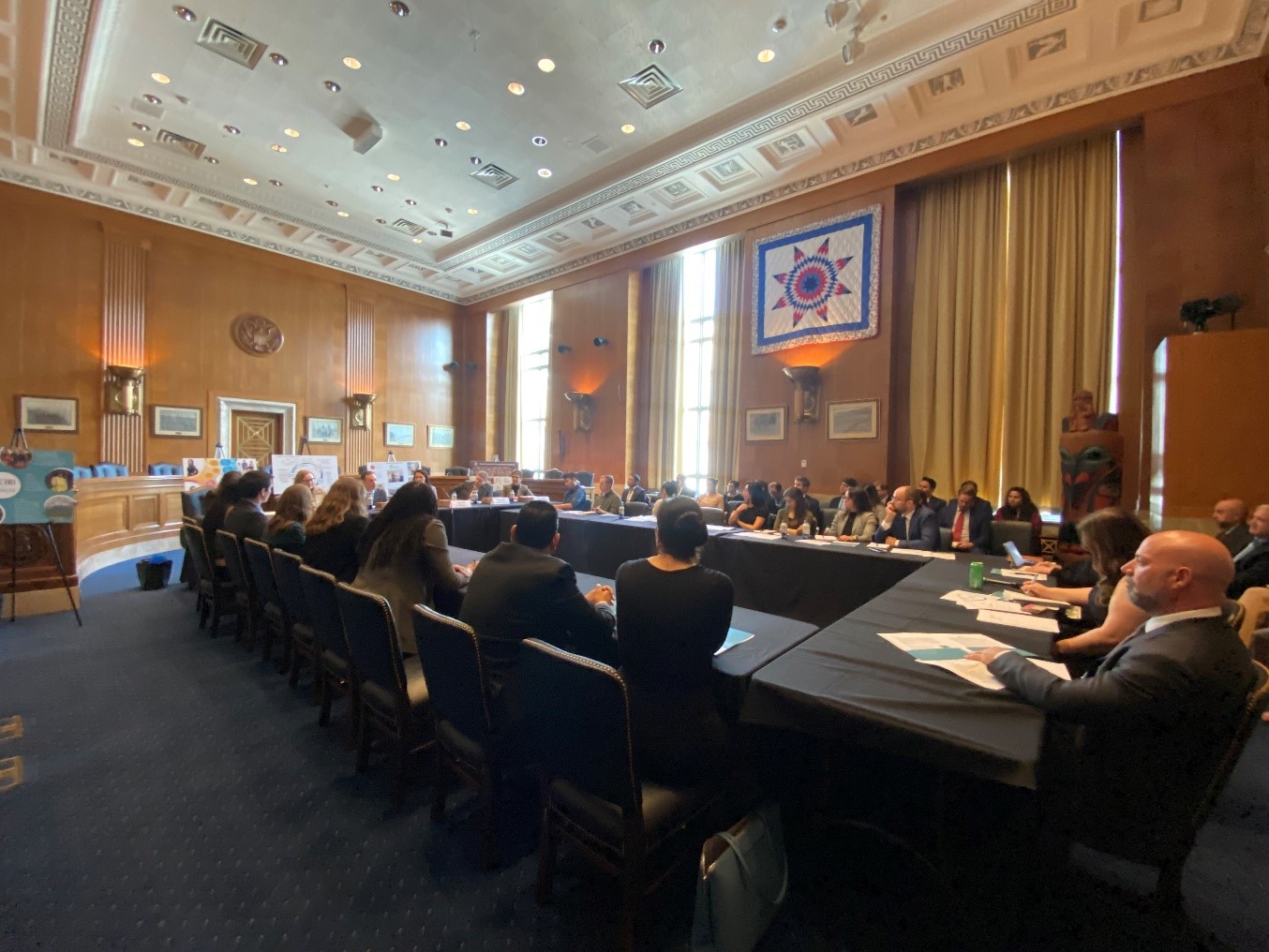How Healthcare is Delivered to Over 70,000 AI/ANs in the Cook Inlet Region of Southern Alaska

The Senate Committee on Indian Affairs hosted a briefing that was led by the Cook Inlet Region, Inc. (CIRI) on November 1, 2023. The objective of the briefing was to share information about how CIRI and its partner organizations collaborate to deliver healthcare to the over 70,000 American Indians and Alaska Natives (AI/ANs) in the Cook Inlet Region. CIRI was created, along with 11 other AN regional corporations, under the Alaska Native Claims Settlement Act (ANCSA). CIRI delegates its Tribal authority to three Designated Tribal Organizations (DTOs) that serve those who live in the Cook Inlet Region, regardless of their affiliation with CIRI. These DTOs include the Cook Inlet Housing Authority (CIHA), Southcentral Foundation (SCF), and Cook Inlet Tribal Council (CITC).
At the briefing, CIRI was joined by DTO leaders who detailed how healthcare is delivered to the Cook Inlet Region, despite the geographical difficulties that the region poses. First, the CEO of CIHA explained how the passage of the Native American Housing Assistance and Self-Determination Act (NAHASDA) created a housing boom and that NAHASHA has been the primary funding source for affordable housing operation and development in the area’s Tribal communities. The CEO also explained that CIHA has a lending center, for both residential and small business loans, and a Housing Stability Team that provides individualized support for those who struggle with housing.
Next, the CEO of SCF discussed the technical aspects of how SCF follows through with its responsibilities pursuant to the Indian Self-Determination and Education Assistance Act (ISDEAA). ISDEAA requires the effective delivery of health care to 70,000 AI/ANs who comprise the IHS Anchorage Service Unit and certain outpatient services to nearly 160,000 ANs statewide. SCF is CIRI’s DTO for the delivery of health services in Anchorage and the Matanuska-Susitna Borough and SCF partners with the Alaska Native Tribal Health Consortium (ANTHC) to jointly operate the Alaska Native Medical Center (ANMC). ANMC is uniquely organized as both a statewide and regional hospital, being the only regional hospital for the 70,000 AI/ANs who live in the Municipality of Anchorage, the Matanuska-Susitna Borough, and the 55 rural Alaskan villages comprising the Anchorage Service Unit. ANTHC is responsible for inpatient and ambulatory services to all AI/ANs who live in the state of Alaska. SCF is responsible for certain statewide ANMC outpatient services as well as ANMC regional outpatient services delivered to the 70,000 AI/ANs who comprise the Anchorage Service Unit.
Then, the CEO of CITC shared recent successes in building a “FAB Lab” where members can be exposed to the world of STEM (Science, Technology, Engineering, Math). CITIC also has particular interest in the rise of video game development – pointing to the success of a video game called “Never Alone,” sharing that the game developed in collaboration with the Cook Inlet Tribal Council has over 15 million internet downloads. The CEO further highlighted the importance of cultural responsiveness by explaining how presence of serious health needs involving drug and alcohol use led to the opening of inpatient centers. These centers employ a wholistic approach to healing and recovery – to promulgate cultural and traditional practices.
Finally, the Q&A portion of the briefing centered around the need for Congress to uphold its treaty obligation by fully funding IHS, as the region still has many needs involving scope and scale of the health care infrastructure in the expansive Cook Inlet Region.
National Indian Health Board
50 F St NW, Suite 600 | Washington, DC 20001 | Phone: 202-507-4070 | Email: [email protected]